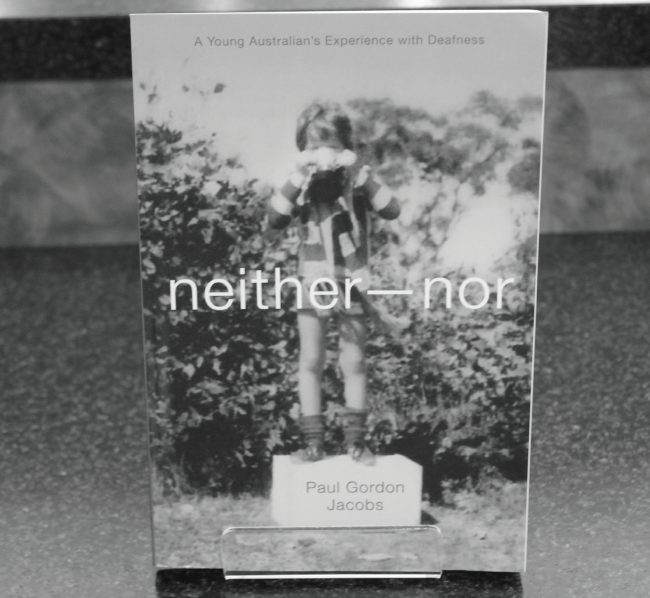

Photo Credit / Eric Kump
By Lacy Jones
SC Contributing Writer
Born in Australia and raised by his father following his mother’s death, Paul Gordon Jacobs inexplicably lost his hearing at the age of four.
Although specialists attempted to introduce him to sign language, Jacobs was already accustomed to speech and listening.
He wore hearing aids to amplify sound, but with the profound degree of his hearing loss, he still was unable to understand speech using listening alone.
Since he did not use sign language and was mainstreamed in school, he found himself growing up neither deaf, nor able to hear speech.
Jacobs shares his experiences facing a life of adversity in an autobiographical novel, “Neither-Nor”.
The book, which is assigned each semester to Introduction to Sign Language students, details the challenges he faced by accepting a social identity that was not yet defined.
In 2009, Jacobs received a Ph.D. from the University of Melbourne. He currently has 26 published academic articles and is working on completing his second book.
In an upcoming presentation at ESU, he will be discussing his research on psychosocial profiles of successful individuals, particularly those individuals with deafness and other disabilities.
One of his articles, “Psychosocial Potential Maximization: A Framework of Proactive Psychosocial Attributes and Tactics Used by Individuals Who are Deaf,” was published in 2010 by The Volta Review and is available through the ESU library databases.
Students and faculty will have the opportunity to learn about Dr. Paul Gordon Jacobs’ research and his personal life experience as an individual facing adversity during two presentations at ESU.
The first presentation will be held on Thursday November 6, in Stroud Hall room 117 from 5:30 PM to 7:00 PM.
During this presentation, entitled “Adversity, Misfortune, Resilience, and Strategy,” Dr. Jacob’s will discuss his academic research.
On Friday, November 7, 2014 from 6:00 PM to 7:00 PM in the Abeloff Performance Center, he will be discussing his autobiography, “Neither-Nor.”
Many individuals who are oral deaf, as Dr. Paul Gordon Jacobs identifies, prefer the use of captioning rather than sign language interpretation.
Remote captioning services will be utilized during the Friday presentation for the first time on campus at ESU.
This technology allows for the audio signal from the speaker’s voice to be transmitted by telephone to a captionist at a remote location.
The captioned dialog is sent back via the Internet to a computer in the auditorium where it is projected onto a screen.
These presentations and accompanying captioning services are being offered for no admission charge and will be open to the public.
Email Lacy at:
ljones1@live.esu.edu
